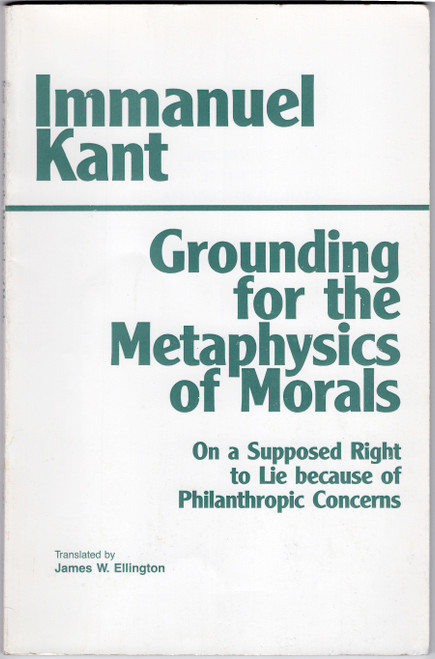Immanuel Kant's Grounding for the Metaphysics of Morals is a seminal work in moral philosophy, offering a systematic exploration of the fundamental principles of morality. Kant argues that moral judgments must be based on reason alone, independent of empirical influences or personal inclinations. In this concise yet profound text, Kant presents his famous categorical imperative as a universal moral law that guides ethical actions. Through rigorous analysis, he examines concepts such as duty, autonomy, and the moral worth of actions, laying the groundwork for his broader philosophical framework. James W. Ellington's preeminent translation provides clarity and accessibility, making Kant's complex ideas accessible to contemporary readers.
This expanded edition of James Ellington's translation includes his new translation of Kant's essay "On a Supposed Right to Lie because of Philanthropic Concerns," in which Kant responds to one of the standard objections to his moral theory as presented in the main text: that it requires us to tell the truth even in the face of harmful consequences.
About the Author
Immanuel Kant (1724–1804) was a German philosopher known for his profound influence on modern philosophy. Born in Königsberg (now Kaliningrad, Russia), Kant's works, including Critique of Pure Reason and Grounding for the Metaphysics of Morals, transformed philosophical inquiry by exploring concepts like morality, reason, and the nature of knowledge. His philosophy laid the groundwork for the Enlightenment's emphasis on reason and autonomy, shaping ethical thought and epistemology for centuries to come.
James W. Ellington is a distinguished translator and scholar known for his translations of German philosophical texts into English. Ellington's translations, such as his rendition of Immanuel Kant's Grounding for the Metaphysics of Morals, published by Hackett Publishing Co. Inc., are celebrated for their clarity and fidelity to the original texts. His expertise in German philosophy and meticulous approach to translation have made complex philosophical ideas accessible to English-speaking audiences, contributing significantly to the dissemination of Kantian philosophy in the Anglophone world.








